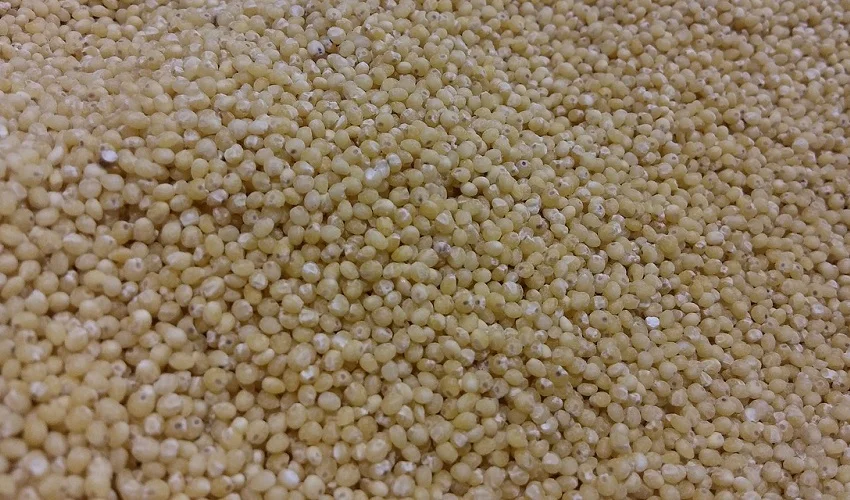What is Madhunashini?
Madhunashini, also known as Gymnema Sylvestre, is a herb that has been used for centuries in traditional Ayurvedic medicine. It is known for its potential benefits in managing diabetes. It contains active compounds that help regulate blood sugar levels by stimulating insulin production and improving insulin sensitivity. Additionally, it may also reduce sugar cravings and promote weight loss. This herb has shown promising results in clinical studies, making it a popular natural remedy for individuals with diabetes. However, it is important to consult with a healthcare professional before incorporating Madhunashini into your diabetes management plan.
What is Diabetes?
Diabetes is a chronic medical condition characterized by high levels of glucose in the blood. It occurs when the body either does not produce enough insulin or cannot effectively use the insulin it produces. Insulin is a hormone that regulates blood sugar levels and allows cells to absorb glucose for energy. Without proper insulin function, glucose builds up in the bloodstream, leading to various health complications. There are different types of diabetes, including type 1, type 2, and gestational diabetes. It is a serious condition that requires lifelong management and can have a significant impact on a person’s overall health and well-being.
The Link between Madhunashini and Diabetes
Madhunashini has been studied for its potential benefits in managing diabetes. This herb has been traditionally used in Ayurvedic medicine to help regulate blood sugar levels. Research suggests that Madhunashini may work by increasing insulin production, improving insulin sensitivity, and reducing sugar cravings. It may also have antioxidant properties that can help protect against the complications of diabetes. However, more studies are needed to fully understand the effectiveness and safety of Madhunashini in diabetes management. It is important to consult with a healthcare professional before adding any new supplements or herbs to your diabetes treatment plan.
Benefits of Madhunashini for Diabetes
Regulates Blood Sugar Levels
It works by reducing the absorption of glucose in the intestines and increasing the production of insulin in the pancreas. This herb is particularly beneficial for individuals with diabetes as it helps to lower blood sugar levels and improve insulin sensitivity. Additionally, Madhunashini has been found to have anti-inflammatory properties, which can help reduce the risk of complications associated with diabetes. Overall, incorporating Madhunashini into your daily routine may be a natural and effective way to manage diabetes and maintain healthy blood sugar levels.
Improves Insulin Sensitivity
One of the key benefits of Madhunashini is its ability to improve insulin sensitivity. Insulin sensitivity refers to how well the body’s cells respond to insulin, the hormone that regulates blood sugar levels. By improving insulin sensitivity, Madhunashini helps the body effectively utilize insulin, leading to better blood sugar control. This can be particularly beneficial for individuals with diabetes, as it can help reduce the need for insulin injections or other diabetes medications. Additionally, Madhunashini has been shown to support healthy pancreatic function, further aiding in the management of diabetes. Overall, incorporating Madhunashini into a diabetes management plan may have significant benefits in improving insulin sensitivity and achieving better blood sugar control.
Reduces the Risk of Complications
Studies have shown that this herb can help lower blood sugar levels, improve insulin sensitivity, and reduce the risk of developing complications such as heart disease, kidney damage, and nerve damage. Additionally, Madhunashini has been found to have antioxidant properties, which can help protect against oxidative stress and inflammation, both of which are common in diabetes. Overall, incorporating Madhunashini into a diabetes management plan can be beneficial in reducing the risk of complications and improving overall health.
How to Use Madhunashini for Diabetes
Dosage and Administration
The dosage and administration of Madhunashini for diabetes management should be determined by a healthcare professional. It is important to follow the prescribed dosage and administration instructions to ensure optimal effectiveness and minimize the risk of side effects. Typically, Madhunashini is taken orally in the form of capsules or tablets. The dosage may vary depending on the severity of the condition and individual response to the medication. It is advisable to take Madhunashini with meals to improve absorption and reduce the likelihood of gastrointestinal discomfort. Regular monitoring of blood sugar levels is essential to evaluate the effectiveness of the treatment and make any necessary adjustments to the dosage. It is important to consult with a healthcare professional before starting or making any changes to the dosage and administration of Madhunashini.
Possible Side Effects
It is believed to have potential benefits in reducing blood sugar levels and improving insulin sensitivity. However, like any other medication or supplement, Madhunashini may have possible side effects. Some individuals may experience gastrointestinal discomfort, such as nausea or stomach upset, when taking Madhunashini. Additionally, it may interact with certain medications, so it is important to consult with a healthcare professional before starting any new treatment. Overall, while Madhunashini has shown promise in managing diabetes, it is crucial to be aware of the potential side effects and to use it under the guidance of a healthcare provider.
Precautions and Warnings
When using Madhunashini for diabetes management, it is important to take certain precautions and be aware of potential warnings. First and foremost, it is crucial to consult with a healthcare professional before incorporating Madhunashini into your diabetes treatment plan. They can provide guidance on the appropriate dosage and any potential interactions with other medications. Additionally, individuals with underlying medical conditions or who are pregnant or breastfeeding should exercise caution and seek medical advice before using Madhunashini. It is also important to monitor blood sugar levels regularly while using Madhunashini to ensure optimal diabetes management. Lastly, if any adverse reactions or side effects occur, it is important to discontinue use and seek medical attention. By following these precautions and being aware of potential warnings, individuals can safely and effectively incorporate Madhunashini into their diabetes management routine.
Research Studies on Madhunashini and Diabetes
Study 1: Effects of Madhunashini on Blood Sugar Levels
In Study 1, researchers investigated the effects of Madhunashini on blood sugar levels. The study aimed to determine whether Madhunashini could help regulate blood sugar levels in individuals with diabetes. The results of the study showed that Madhunashini had a significant impact on reducing blood sugar levels. Participants who took Madhunashini experienced a significant decrease in their blood sugar levels compared to those who did not take the supplement. These findings suggest that Madhunashini may be a beneficial natural remedy for managing diabetes and controlling blood sugar levels.
Study 2: Madhunashini and Insulin Sensitivity
In Study 2, researchers examined the effects of Madhunashini on insulin sensitivity in individuals with diabetes. Insulin sensitivity is a crucial factor in managing blood sugar levels and preventing complications associated with diabetes. The study found that Madhunashini supplementation significantly improved insulin sensitivity, leading to better glucose control and reduced insulin resistance. These findings suggest that Madhunashini may be a promising natural remedy for enhancing insulin sensitivity and managing diabetes effectively.
Study 3: Madhunashini and Diabetes Complications
In Study 3, researchers investigated the effects of Madhunashini on diabetes complications. The study involved a group of individuals with diabetes who were given Madhunashini supplements for a period of six months. The results showed that the participants experienced a significant reduction in the occurrence of diabetes-related complications such as neuropathy, retinopathy, and nephropathy. Additionally, the participants reported improved glycemic control and a decrease in insulin resistance. These findings suggest that Madhunashini may be beneficial in managing and preventing diabetes complications.
Other Health Benefits of Madhunashini
Anti-inflammatory Properties
One of the key benefits of Madhunashini is its anti-inflammatory properties. Inflammation is a natural response of the body to injury or infection, but chronic inflammation can lead to various health problems, including diabetes. Madhunashini helps reduce inflammation in the body, which can help manage diabetes and prevent complications associated with the disease. Studies have shown that Madhunashini can inhibit the production of inflammatory markers in the body and reduce oxidative stress, which is a common factor in chronic inflammation. Incorporating Madhunashini into your diabetes management plan may provide additional benefits in controlling blood sugar levels and improving overall health.
Antioxidant Effects
Antioxidant effects refer to the ability of a substance to neutralize harmful free radicals in the body. Madhunashini, also known as Gymnema Sylvestre, has been found to possess significant antioxidant properties. These properties help in reducing oxidative stress and inflammation, which are key factors in the development and progression of diabetes. By scavenging free radicals, Madhunashini can help protect the body’s cells and tissues from damage. This can contribute to improved insulin sensitivity and better blood sugar control in individuals with diabetes. Additionally, the antioxidant effects of Madhunashini may also have a positive impact on other aspects of health, such as cardiovascular health and immune function. Overall, the antioxidant effects of Madhunashini make it a promising natural remedy for managing diabetes and promoting overall well-being.
Immune System Support
The consumption of Madhunashini has been found to provide numerous benefits for the immune system. It contains active compounds that help stimulate the production of immune cells, enhancing the body’s defense against infections and diseases. Additionally, Madhunashini has been shown to have anti-inflammatory properties, which further support the immune system by reducing inflammation and promoting overall health. Regular consumption of Madhunashini can help strengthen the immune system and improve its ability to fight off various illnesses.
Summary of the Benefits of Madhunashini for Diabetes
It has been found to have numerous benefits for individuals with diabetes. One of the main benefits is its ability to lower blood sugar levels. Madhunashini contains compounds that act as insulin-like agents, helping to regulate glucose metabolism and improve insulin sensitivity. This can be especially beneficial for individuals with type 2 diabetes. Additionally, Madhunashini has been shown to reduce cravings for sweet foods, which can be helpful for managing blood sugar levels and weight. It also has anti-inflammatory properties, which can help reduce inflammation associated with diabetes. Overall, Madhunashini has the potential to be a valuable natural remedy for individuals with diabetes, but it is important to consult with a healthcare professional before incorporating it into your treatment plan.
Future Research and Potential Applications
Future research on Madhunashini and its potential applications in the field of diabetes is crucial for further understanding and exploration. With its long history of traditional use in Ayurvedic medicine, there is a need for scientific studies to validate its effectiveness and safety. Additionally, investigating the mechanisms of action and identifying the active compounds present in Madhunashini can provide valuable insights for the development of new therapeutic approaches for diabetes management. Furthermore, exploring the potential synergistic effects of Madhunashini with other conventional diabetes treatments could lead to the development of more effective and personalized treatment strategies. Overall, future research in this area has the potential to contribute significantly to the field of diabetes research and improve the lives of millions of people affected by this chronic disease.
Final Thoughts
In conclusion, Madhunashini has shown promising benefits in managing diabetes. Its ability to lower blood sugar levels and reduce cravings for sweet foods make it a valuable natural remedy for individuals with diabetes. Additionally, Madhunashini may also help improve insulin production and enhance the effectiveness of other diabetes medications. However, it is important to note that Madhunashini should not be used as a substitute for medical treatment and consultation with a healthcare professional is advised. Overall, incorporating Madhunashini into a diabetes management plan may provide additional support and help individuals achieve better control over their blood sugar levels.




